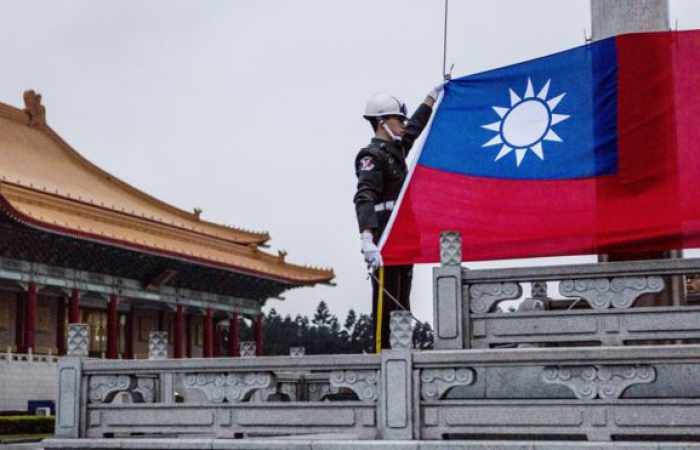China accused by Taiwan of stepping up spy operations

He claimed Beijing was trying to sow chaos within Taiwanese society.
China considers the self-ruling island territory that must be reunited with the mainland - by force if necessary.
In an interview with the BBC, Mr Wang said intelligence reports suggest China spends millions of dollars on its Taiwan operations.
He said Chinese spies tried to recruit agents within Taiwan's corridors of power.
"Some get married into Taiwan, some pretend they are scholars, some pretend they are businessmen, and they immerse themselves into our society," he said.
"They seduce and lure our military personnel and government officers into becoming their agents."
Mr Wang said he could not disclose the source of his information.
Beijing has previously denied claims that it sends spies to Taiwan.
'Cold shivers'
Earlier this week, a bodyguard for the former Vice-President Annette Lu was arrested and accused of spying.
Wang Hong-ju is accused of being paid by the Chinese to recruit an intelligence officer to gather information for Beijing in exchange for a large cash payment and safe relocation to mainland China if exposed.
He is alleged to have worked for China after leaving government service in Taiwan, but the episode is likely to unnerve the Taiwanese authorities.
"The realisation that even someone who worked that close to the top of the island's government hierarchy could become a spy for the nation's biggest enemy gives one cold shivers," read an editorial in the English-language Taiwan News.
Annette Lu said the bodyguard was one of about 50 who had been assigned to protect her.
"It's important that we check the security and loyalty of those who serve the president and vice-president," she told the BBC.
Just a few days before the bodyguard's detention, a Chinese student, Zhou Hongxu, was also arrested in Taiwan for breaching national security laws.
Some media outlets were reporting that there are around 5,000 Chinese spies in Taiwan, although the government later denied that was true.
Spreading unrest
China has spied on Taiwan for years, but Wang Ting-yu said the election of Ms Tsai, from the Democratic Progressive Party, appeared to have spurred Beijing into greater action.
He said China's aim was not simply to collect information, but also to spread unrest in Taiwan.
The island's commitment to an open society was allowing Beijing to stir up trouble under the cloak of free speech, said the committee chairman. "You cannot tell who your enemy is," he said.
Several new laws to tighten security are due to be introduced this year.
Taiwan plans to ban senior government and military officials from travelling to China for three years after they retire, to prevent them from being lured into handing over secret information.
If China has increased its secret activities in Taiwan this would fit into a broader pattern of antagonism towards the island since Ms Tsai's election.
China had warm ties with the previous Taiwanese President, Ma Ying-jeou, but it has cut all contact with Ms Tsai.
It has also reverted to its previous policy of trying to isolate Taiwan in the international arena.
A Taiwanese defence review published once every four years came out this week and said China now posed an even greater military threat to the island.














































